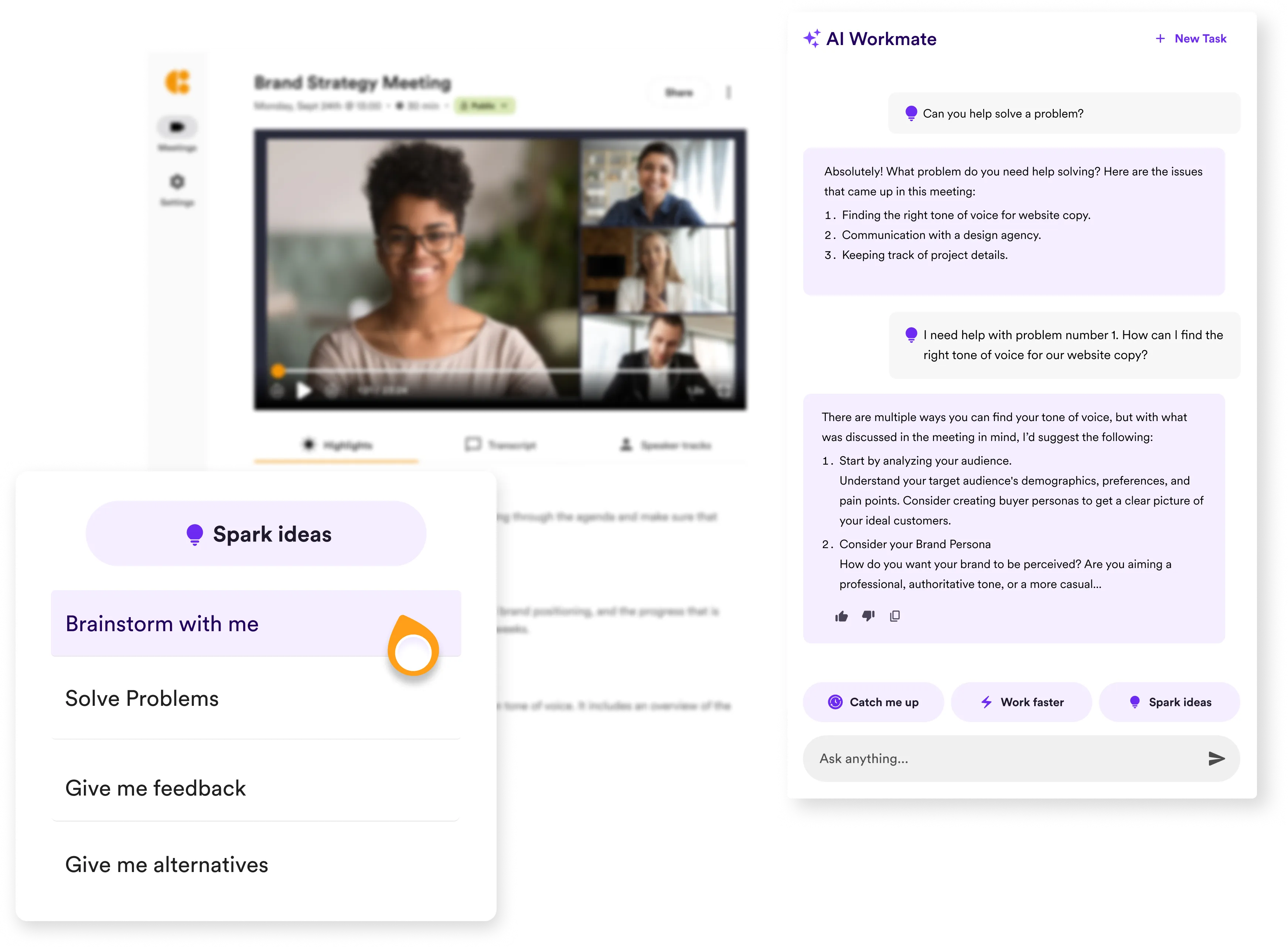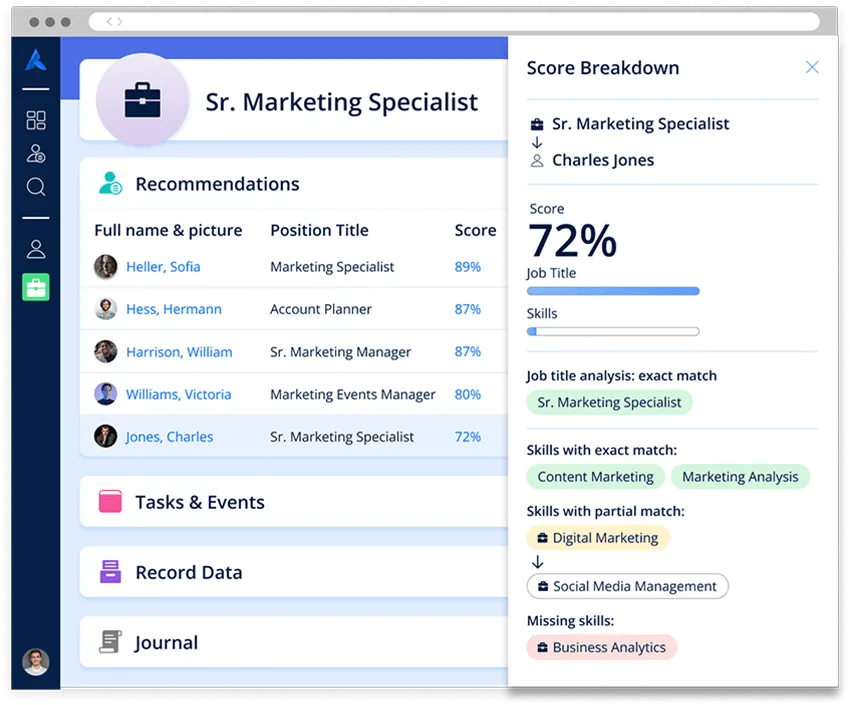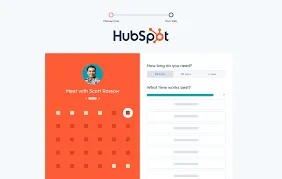AI Recruiting : 8 use cases and tools

With the war for talent raging and candidate expectations at an all-time high, being a recruiter has never been more complex.
One key to your success lies in using AI-powered tools to optimize your recruitment process.
Numerous tools are emerging lately to analyze your resumes in seconds, identify top talent, and predict a candidate's success within your company.
In this article, we'll go straight to the best applications of AI in your workday, with examples of tools included.
8 AI applications in recruitment with sample tools
As a recruiter, you constanly look for tools to optimize your recruitment processes. Well, current developments in AI provide concrete solutions to most of your daily challenges. Here are the 8 most promising AI applications:
1. Intelligent candidate sourcing

Want to identify and hire promising talent, faster and more accurately?
Intelligent candidate sourcing is now possible thanks to artificial intelligence (AI).
How does it work?
AI analyzes data from job platforms and social media to identify candidates who best match a job's specific criteria.
This includes not only sorting through resumes, but also identifying passive candidates who aren't actively looking for a job but could be a perfect match for your company.
These tools enable you to contact these candidates directly with personalized outreach. They help you reach and source a much wider pool of talents.
Examples of tools
Software such as Turing and Manatal or others use deep learning algorithms not only to find the best candidates for a given position, but also to offer a personalized candidate experience. This increases engagement and, in turn, response rates, making the recruitment process a more enjoyable experience for candidates.
2. Sort resumes and applications

Sorting through a long list of resumes and applications has always been a daunting task as a recruiter. AI makes this process more efficient and accurate.
How does it work?
Many software provide ways to facilitate this task
One of the most common methods is Resume Scoring, where the software assigns scores to candidates based on criteria set by the recruiter, such as years of experience or languages spoken. This enables quick and efficient initial sorting of applications . Another tool, Ranking, ranks resumes according to the presence of specific keywords, highlighting those that contain the most terms searched for by the recruiter.
The Matching uses artificial intelligence to match resumes to job offers, selecting those applications that best meet the job requirements. This method ensures that only the most compatible candidates are considered. Finally, Parsing semantically analyzes resumes to extract key information, making it even easier to filter candidates according to specific criteria.
Examples of tools
Software such as Workable and Teamtailor integrate these AI methods to offer an enriched recruitment experience, connecting recruiters to a vast database of candidates and highlighting the most promising candidates.
Workable, for example, connects recruiters to over 400 million profiles and integrates AI features to enhance candidate search.
Teamtailor, meanwhile, uses its AI robot to identify and flag the most promising candidates as soon as their application is received, using a machine-learning algorithm to distinguish the most promising applications.
3. Improve candidate databases

With the multiplication of data sources, cleaning and refining database has become crucial for recruiters. Applicant management systems (ATS) integrate AI to facilitate this processing.
How does it work?
AI provides advanced features for ATS, such as predictive analytics and natural language processing to help match applications to vacancies. This process uses real candidate data and predictive models to determine the affinity between a candidate and a position.
It also enables them to enrich their database and turn it into a workable process. This includes automatic enrichment of candidate profiles from professional social networks, semantic analysis for better understanding of CVs, and alert systems for regular data updates. These solutions help you maintain a clean, up-to-date and efficient database, optimizing your recruitment processes.
This process can, however, include the risk of creating "clone" profiles, which do little to encourage diversity. This means maintaining a balance between the use of technology and the importance of human interaction in the recruitment process, to guarantee optimal results.
Examples of tools
Tools like Bullhorn, Zoho Recruit, and LinkedIn Recruiter are known to offer features that help manage and optimize candidate data, including database cleansing. These platforms often remove duplicates, update candidate information, and organize data to make the recruitment process more efficient.
4. Automatic reference check

Do you want to be able to identify lies on resumes and check candidates' references quickly? This task is now made much easier with AI.
How does it work?
AI in background and reference checks: A study by the Society for Human Resource Management reveals that 78% of candidates embellish their CVs. AI can verify the authenticity of diplomas, work experience and even criminal records in some countries, offering greater confidentiality and selecting the most suitable profiles.
Automating reference checking: Reference checking, often carried out towards the end of recruitment, can be time-consuming. AI-based tools automate this process, gathering all relevant information on a single platform.
Be careful to comply with the legal framework: It is essential to comply with current legislation, in particular by obtaining the candidate's prior agreement to proceed with reference checks using these tools. This ensures protection for the candidate and efficiency for the employer.
Examples of tools
Tools like Checkr and Jointr use AI to collect information automatically from various databases (social networks in particular) and check the veracity of the information provided by your candidates.
5. Keeping candidates informed with a chatbot

Today's candidates want to know in real time how the recruitment process is going. They also want to be able to chat easily with recruiters for any questions or feedback. The problem? You're not always available to them. AI-powered chatbots provides your candidates with a 24-hour communication channel.
How does it work?
AI-powered chatbots can provide instant answers to candidates' questions, any time of the day or night. You can program chatbots to send automatic updates to candidates on the status of their application. You can also personalize them to offer interactions based on candidates' responses and interests, thus reducing anxiety and improving engagement.
Finally, these tools can also ask preliminary questions to pre-qualify candidates before they even speak to a recruiter, saving valuable time.
Examples of tools
Here are a few examples of software that can help you integrate chatbots into your recruitment process:
- Mya Systems : Mya is a recruitment chatbot that automates engagement with candidates, answering their questions and guiding them through the application process.
- Olivia by Paradox: Olivia helps automate various stages of the recruitment process, including communicating with candidates and scheduling interviews.
- XOR: XOR uses AI to automate communication with candidates, offering personalized interactions 24/7.
- Ari by Brazen: Ari is a chatbot designed to facilitate virtual recruitment events, helping to engage candidates and answer their questions in real time.
- Wade & Wendy: These are AI recruitment assistants that help engage candidates and optimize the recruitment process for recruiters.
6. Transcribe and process interview data

Do you want to keep all the details of your interviews and easily share this data about your candidates ? A host of new tools enable you to record, transcribe and analyze conversations with your candidates.
Examples of tools
- Noota: Noota records your interviews, transcribes them, and generates a structured report. This enables recruiters to easily evaluate and compare candidates based on concrete interview data. What's more, Noota helps easily share the candidate data between members of the recruitment team, ensuring that everyone is up to date. This approach ensures better organization of the data collected, and more informed decision-making.
- ChatGPT: Far beyond simple transcription, OpenAI's ChatGPT can generate automated responses and assist with job postings or interview scripts. This generative AI tool is accessible free of charge, with premium options for advanced use of up to $25 per month for team collaboration.
- HireVue: This platform combines videoconferencing for interviews and a conversational AI tool, optimizing interview scheduling and candidate assessment.
7. Automatic assessment of candidates

Still a sensitive topic in recruitment, the automatic assessment of candidates thanks to AI is a practice that's on the rise among recruiters.
How does it work?
- Automated CV sorting: AI can automatically sort CVs based on predefined criteria, such as skills, experience and qualifications, using natural language processing (NLP) techniques. This automation enables applications to be ranked in order of relevance quickly and efficiently.
- Advanced skills and experience analysis: AI assists in the assessment of candidates' skills and experience using advanced analysis tools and adaptive testing. These tools provide objective data on candidates' abilities, helping recruiters to make informed choices.
- Virtual interviews: Recruiters can conduct virtual interviews using AI-powered virtual assistants or chatbots. These technologies can interact with candidates, record and transcribe interviews for easier analysis, making the process faster and reducing bias.
- Behavioral analysis: AI is able to analyze candidates' behavior during interviews, detecting emotions and attitudes through facial, voice or gesture recognition techniques. This analysis provides valuable insights into the candidate's personality and culture, offering a more comprehensive assessment.
Integrating AI into the candidate assessment process promises not only to increase recruitment efficiency and accuracy, but also to improve the candidate experience by ensuring faster, more personalized interactions.
However, it's essential to navigate carefully, recognizing the ethical challenges and ensuring a balance between technology and human intervention to guarantee fair and inclusive recruitment processes.
Examples of tools
- Most ATs on the market: Greenhouse, Workable, Beetween,... filter your candidates' CVs and rate their suitability for your position.
- Noota: A tool that records, transcribes and generates a structured report of your interviews. It lets you mine the data to easily evaluate and compare candidates, and share a structured report with your teams.
- HireVue: Offers automated video interviews where candidates' responses are analyzed to assess their suitability for the position. This tool also integrates a virtual recruitment assistant to optimize interview scheduling and candidate evaluation.
- Pymetrics: Uses neuroscience-based games to assess candidates' personality traits and cognitive skills, providing recruiters with objective data to support their hiring decisions.
8. Poeple analytics

To optimize in-house skills management and support your employees' professional development, a number of software programs equipped with artificial intelligence offer innovative solutions.
How do they work?
These tools not only facilitate the identification and assessment of skills, but also enable the planning of appropriate training actions, thus promoting a better match between available skills and company needs.
These software applications are effective solutions for recruiters and HR departments wishing to modernize skills management within their organization.
Not only do they save time by automating processes, they also provide a more accurate and up-to-date view of available talent, facilitating strategic decision-making in terms of professional development and training planning.
Examples of tools
Skills Base is a free option for small teams (up to 25 people), ideal for mapping and assessing skills. It enables centralized management of skills and facilitates planning of the training needed to fill identified gaps.
PeopleSpheres offers a complete solution for monitoring and assessing employee skills. With its skills matrix, it is possible to track progress and effectively offset skills deficits, aligning skills with corporate strategy. The software also facilitates the active participation of employees in the management of their professional skills.
365Talents offers a dynamic approach to talent management. Using semantic analysis, it captures all the talents of your employees and produces a real skills map. This software is particularly effective for updating your skills repository automatically, adapting to changes in skills and professions within the company.
What are the benefits of these AI tools for your recruitment processes?

Integrating AI vosu offers an array of benefits, making your recruitment strategies not only more effective but also more inclusive and personalized. So, let's dive into the benefits AI can bring to your recruitment practice:
Significant time savings
One of the most immediate benefits of using AI in recruitment is reducing time spent on administrative and repetitive tasks. Thanks to automated CV sorting, skills analysis and chatbot management of initial interviews, you can devote more time to strategic aspects of recruitment, such as building relationships with candidates or developing talent attraction strategies.
Improved Quality of Hire
Thanks to predictive analytics and AI's ability to objectively assess candidates' skills and qualifications, you're able to identify the most suitable candidates for a specific position. AI helps you go beyond the keywords in a CV to understand candidates' actual skills, reducing the risk of mismatched hires and improving cultural fit.
Reducing Recruitment Bias
The objectivity AI brings to the candidate selection process helps minimize unconscious bias. By using predefined data and criteria to evaluate candidates, AI enables a fairer selection process, promoting diversity and inclusion within your company.
Enhanced candidate experience
Using chatbots to communicate with candidates offers a more responsive and engaging experience. Candidates can get answers to their questions in real time, at any time of day. This helps strengthen your employer brand by showing that you value engagement and communication with candidates.
In-depth data analysis
AI enables you to analyze large quantities of data on candidates and labor market trends, providing you with valuable insights to refine your recruitment strategies. This analytical capability helps you to anticipate future skills needs and adapt your recruitment efforts accordingly.
What are the challenges of implementing AI in your recruiting?

As advantageous as AI is, it also presents important challenges and considerations that you, as recruiters, need to keep in mind. It's crucial to navigate carefully with carefully thought-out ethical issues:
Understanding and managing AI bias
A major challenge in using AI for recruitment is managing bias. AI operates on the basis of the data it is provided with, and if this data reflects historical or social biases, AI can perpetuate or even amplify these biases. This raises important ethical concerns about fairness and diversity in the recruitment process. It is therefore essential to ensure that AI algorithms are regularly audited and adjusted to minimize the risk of bias.
Privacy and regulatory compliance
Candidate privacy is another area of concern. With the increasing use of AI and candidate tracking technology, it is imperative to ensure compliance with data protection laws, such as the RGPD in Europe. This means ensuring that candidates are informed about the use of AI in the recruitment process and give their explicit consent for their data to be processed.
Human and technological integration
While AI can improve recruitment efficiency, it is no substitute for human judgment and intuition. It's important to strike a balance between using technology and maintaining a human-centered approach. This means that recruiters must remain involved in the decision-making process, using AI as a tool to complement their expertise, rather than replacing it completely.
Training and skills development
Adopting AI in recruitment also requires skills upgrading and ongoing training for HR teams. This includes not only understanding how AI works and how it can be applied in recruitment, but also the ability to interpret and act on the information provided by AI tools. This can require a significant investment in time and resources to ensure that teams are well prepared to use these new technologies effectively.
AI-based intelligent assistant for recruiters: Noota

Noota is the all-in-one assistant for your recruitment process. It records your conversations (interviews, meetings,...), takes notes for you, and lets you concentrate entirely on the human element. Thanks to its automatic transcription capability, you'll have a clear, precise text of every conversation and meeting, without having to go back over hours of audio recordings.
But Noota goes far beyond simple transcription. It analyzes the content of your interviews and meetings to extract meaningful data, helping you to assess candidates' skills and qualities more objectively. This level of analysis provides a solid basis for comparing candidates, enabling you to make informed decisions.
Sharing this information with your team becomes child's play. Noota generates structured, easy-to-understand reports, ensuring that every team member has the information they need to actively participate in the decision-making process. This facilitates discussions and ensures that all points of view are taken into account before a final choice is made.
Want to leverage AI to gain time and accuracy in your recruiting decisions? Try Noota for free.
Leverage your Interview Data
AI interview notes, scorecard, follow-up, ATS integration, and more...
Related articles

Forget note-taking and
try Noota now
FAQ
In the first case, you can directly activate recording as soon as you join a videoconference.
In the second case, you can add a bot to your videoconference, which will record everything.
Noota also enables you to translate your files into over 30 languages.

.svg)
.svg)
.webp)

.png)


.svg)
